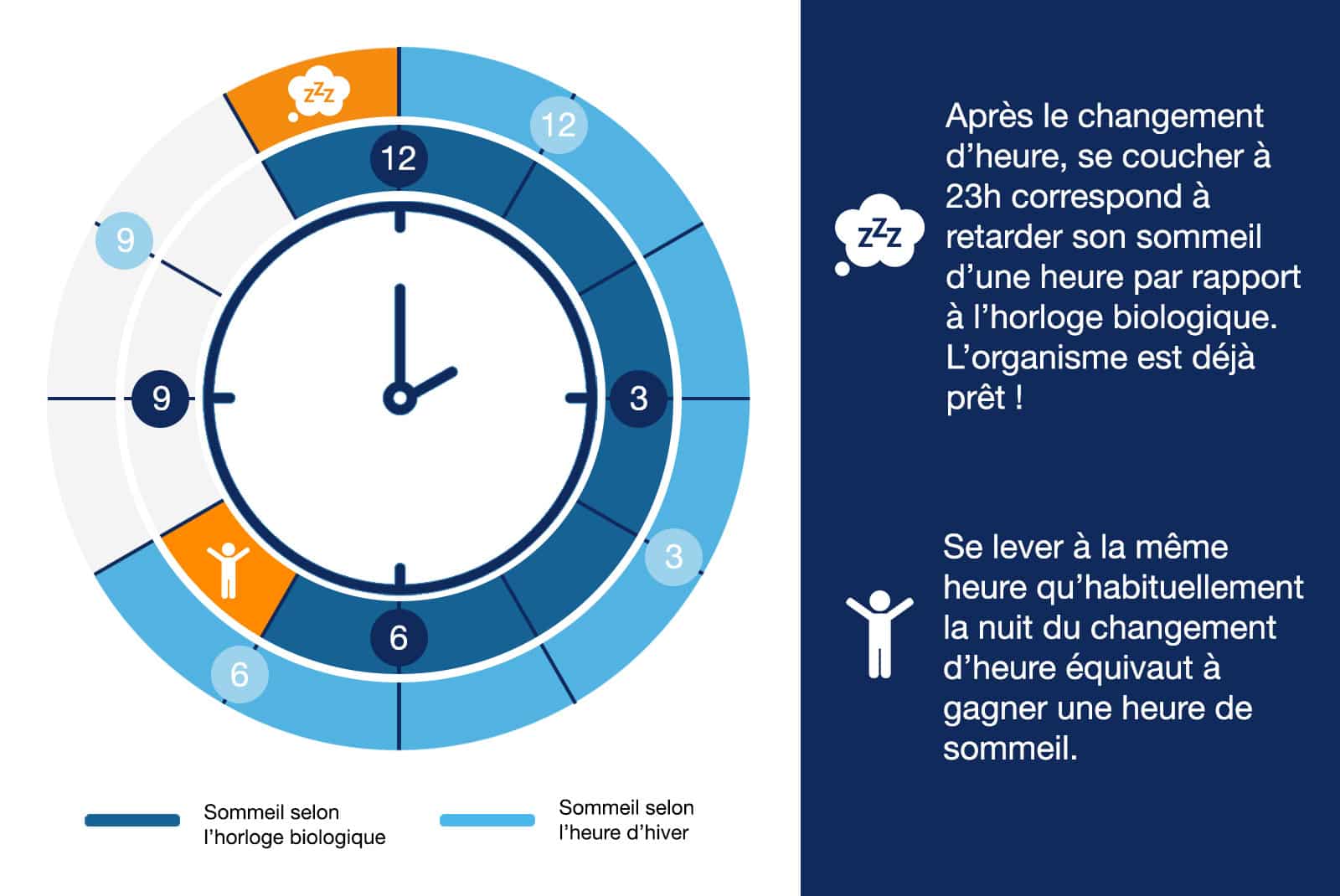How to deal with the winter time change
Sleep hygieneTime change was introduced in Switzerland in 1981, following the oil crisis of 1973, to limit the use of artificial lighting during sunny hours. Each year, this rule means that watches and clocks are set back an hour on the last weekend in October, and set forward an hour in the spring. Switching to winter time can have an impact on biological rhythms and sleep patterns, but the good news is that the body adapts to it much more easily than it does to summer time. But do you know why?
Impact of jet lag
Our entire organism is regulated by an internal clock that manages the alternation between sleep and wake. It synchronizes with natural light and adopts a regular rhythm based on a cycle that lasts slightly longer than 24 hours: the circadian rhythm.
When we change time, or travel across different time zones, we put our biological clock out of sync with the conventional schedule. This change in rhythm can have a number of effects on the body: irritability, sleep or appetite problems…
What happens when winter time changes ?
If the impact on the body is less significant, it’s simply because the changeover to winter time goes hand in hand with our biological clock. In fact, after the changeover, the biological clock will continue to move forward with its usual rhythm, even though it will be one hour ahead of the new time (which will have been moved back).
In fact, it will be 8 p.m. for the biological clock when it’s 7 p.m. on your watch, which is why it’s common in the early days to feel hungry or sleepy earlier in the day, as the internal clock will continue to transmit hunger or sleep signals at its usual times.
This is less tiring, because in the days following the switch to winter time, by the time you go to sleep (if you’re used to going to bed at 11pm, your internal clock will be at midnight), your body will already be ready, so falling asleep and recovering during the night will be all the more important. This change therefore creates “favorable” conditions for falling asleep.
Finally, switching to winter time has the advantage of not creating a sleep debt, and can even allow you to gain an hour’s rest on the night of the time change. It’s much more restful for the body. What’s more, as our biological cycle is slightly delayed each day (the circadian cycle lasts slightly longer than 24 hours), we have a more natural tendency to go to sleep slightly later.
When do you need to adapt gradually?
In most cases, there’s no need to prepare for the switch to winter time. On average, adults only need a few days to resynchronize naturally with their biological clock. However, if you want to immediately recalibrate your biological clock with the new time on your watch, you’ll need to put off going to sleep for an hour.
On the other hand, for young children, the older people with sleep disorders, who are more sensitive to changes in rhythm, we recommend delaying all the important moments of the day (getting up, eating, naps, bedtime) by 30 minutes for the 2 days (or 15 minutes for the 4 days) preceding the change, to make it more gradual.


 Share on facebook
Share on facebook
 Share on twitter
Share on twitter
 Share on linkedin
Share on linkedin
 Share by email
Share by email